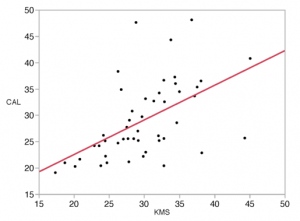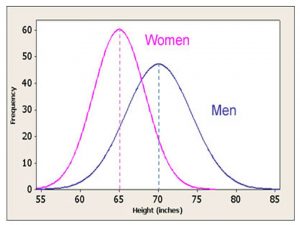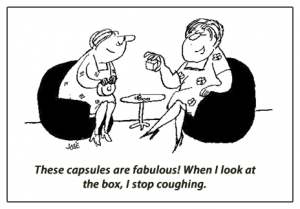Well, it is.
And there is nothing wrong with that, in fact, I am going to argue in this post that it’s necessary.
It’s also a necessary post. Not that I’ve gotten too far into my blogging yet but it’s something that I feel may easily get missed as time goes by and more blog posts arrive. You don’t want to miss the point that it is indeed … personal.
 I’ve come to both love and hate the “you do you” phrase that I seem to be hearing (and voicing) of late. Maybe the phrase is not that common, maybe it is just me? But irrespective, it serves my point well. I wouldn’t be much of a proponent of living organically if I didn’t believe that you do, indeed, need to be you. And the point I want to make, that I really want to hone in on, is that you do need to look at things from a personal perspective. There is a lot of things presented to you in the world, lots of things presented to you online. Opinions, blogs, products, books, programs, diets, religions, etc. Many of them purporting to be the next big thing, or the thing that will solve all your problems. And they may be the next big thing, I’m not disputing that. All I am saying is ask yourself the question … is it the next big thing for me?
I’ve come to both love and hate the “you do you” phrase that I seem to be hearing (and voicing) of late. Maybe the phrase is not that common, maybe it is just me? But irrespective, it serves my point well. I wouldn’t be much of a proponent of living organically if I didn’t believe that you do, indeed, need to be you. And the point I want to make, that I really want to hone in on, is that you do need to look at things from a personal perspective. There is a lot of things presented to you in the world, lots of things presented to you online. Opinions, blogs, products, books, programs, diets, religions, etc. Many of them purporting to be the next big thing, or the thing that will solve all your problems. And they may be the next big thing, I’m not disputing that. All I am saying is ask yourself the question … is it the next big thing for me?
Clearly, it appears that I am having a go at the multitude of things out there that are (hopefully) genuinely trying to help. The reality of the matter though is that it is from my own blog writing and my own opinions that this post has developed! In reading my own posts, in writing them, in editing them, in thinking about what I want to blog about, it was evident that I was presenting an idea of how to do things, how to live, how to climb, how to train but what I wasn’t being clear about was that it’s personal. Yes, it’s personal for me. It’s what I believe, it’s what I do (or at least try to do).
Obviously though, I wouldn’t be writing this blog if I didn’t believe the ideas and thoughts I was presenting couldn’t be beneficial to other people too. I wouldn’t be writing this blog if I honestly didn’t believe I had something to share with other people. But, and this is where my point is made, it’s personal for you too. My ideas and thoughts won’t be for everyone. I doubt any of my current or future ideas and thoughts will appeal to everyone. It’s even possible that many of my ideas and thoughts won’t even appeal to a few people. But hopefully, some people will find my thoughts and ideas work for them.
And that’s the point I want to make explicitly. Explicitly enough that I’ll probably repeat it multiple times. Everything I present in this blog, or through any extension of this blog or if you happen upon me in real life, I present with the unspoken yet implicit premise that it’s something you genuinely need to weight for yourself. Try it on, see if it fits. Play with it. See what you think of it. And then, and only then, go with it. It’s personal for me AND it’s personal for you. What works for me may not work for you (as hard as that is for me, sometimes, to believe).
I am a scientist by education and career. I am a logically minded person. An advocate of the use of the scientific method in determining the validity of many ideas and opinions. I have, for many years, been a very strong supporter of peer reviewed (journal) articles as the pinnacle of information and data for the support of ideas and opinion. I still am a very strong supporter of peer reviewed  journal articles as, essentially, the pinnacle of information and data for the support of ideas and opinions. I’ve just become more aware of the limitations of much of the peer reviewed journal articles in presenting information and data. And that big limitation is … yep, you’ve guessed it … it’s personal.
journal articles as, essentially, the pinnacle of information and data for the support of ideas and opinions. I’ve just become more aware of the limitations of much of the peer reviewed journal articles in presenting information and data. And that big limitation is … yep, you’ve guessed it … it’s personal.
The idea of peer review journal articles is structured research through the use of the scientific method to answer questions. The scientific method is systematic process characterized by a few sequential steps. The steps are, observation (what do you see?), measurement (can you measure it?), hypothesis (what’s your idea?), experimentation (how do you test it?) and analysis (what are the results?). The scientific method ultimately leads to modification of the hypothesis and an ever ongoing process of refinement.
On a more practical level, it’s about collecting a lot of data on a particular idea and (through the use of statistical analysis) determine if there’s a difference between 2 sets of data or 2 sets of conditions.
Is condition A better than condition B?
A very simplified example would be to grab 100 people and put them through condition A. Grab another 100 people and put them through condition B. What’s the outcome of each group? Did the group on condition A do better or did the group on condition B do better? If the group on condition A did better can you then say A does better than B? Usually yes but also … no. Assuming the presence of good scientific process then you can say yes, statistically, condition A is better than condition B. The key to realizing why it’s also no, is understanding that the presence of a statistically significant difference between the 2 groups does not mean it’s different for every person in the group. An easy, real-world situation that can highlight this is the difference in height between men and women. Statistically speaking, mean are taller than women. Yes, few people will truly argue the simple statement than “men are taller than women”. But does this mean all men are taller than all  women? And there is the no.
women? And there is the no.
A little long winded but necessary. Scientific research and the scientific method can and do help us answer many of the questions we ask and provide much of the information we want to know. I am not proposing that we ignore scientific research. And even though I have put forward the idea of taking the personal view, it is clear that scientific research and information produce from the correct use of the scientific method is more than useful. It gives us a baseline to work from. Even though there are many women who are taller than many men, you’d a be a fool to think that randomly choosing 1 man and 1 women that the women would be taller. Obviously, perhaps around 65%+ of the time, the man would be taller. Scientific research and information produce from the correct use of the scientific method can also help to elucidate the reasons and functions behind many of the differences that we see. So don’t ignore it.
So what am I saying? What do I actually mean then by taking it personally?
I’ll go back to what I said above, “is it the next big thing for me?” and “does it work for me?” are what you need to be asking yourself. Asking it for everything. Whether it’s something being presented as good or bad, whether it’s presented in a journal, from a government body, from a respected blog or from your aunt. Even if it is from my site (perhaps especially if it’s from my site?). It may be that most of the information you’ll encounter works as it is stated for most people (my aim and hope is that the information I provide is useful and beneficial for most) but that doesn’t mean it works for everyone and it doesn’t mean that you might not be one of those it doesn’t work for.
Eat carbs, don’t eat carbs. Artificial sweeteners are bad. Grain are inflammatory. Fats are good. Running is bad. Squats and deadlifts don’t help climbers. No pain no gain. Protein powders make you build muscle.
There is a lot of conflicting information and ideas out there. Some of it quite legitimately conflicting, so it can make it hard to work out what to do, what information to listen to and how to use the information. Feel free to work with the information and ideas provided, I would even say use the information and ideas as they are provided, particularly if it is from peer reviewed (journal) articles and/or correct use of the scientific method. Just be prepared to realize that you may be an outlier for a particular piece of information or idea, that it might not work exactly as it is intended for you. Use it is as a starting point but then play with to see if it needs some slight modification to suit you or perhaps just scrap totally because it clearly doesn’t work for you.
and/or correct use of the scientific method. Just be prepared to realize that you may be an outlier for a particular piece of information or idea, that it might not work exactly as it is intended for you. Use it is as a starting point but then play with to see if it needs some slight modification to suit you or perhaps just scrap totally because it clearly doesn’t work for you.
One thing I want to highlight is something that I think far too many people are truly not completely up to speed with. It is definitely important in peer reviewed (journal) articles and/or correct use of the scientific method but is also vitally important in determining the reliability and applicability of any information or ideas that you are exposed to. And that is, the difference between correlation and causality. They are vastly different and have vastly different implications. Causality implies specifically that it is a causal factor. That doing A results in B occurring, though it doesn’t mean with 100% certainty. Smoking does cause cancer but there are still going to be cases of people who smoke and who do not get cancer. A correlation simply means that 2 things go together, that they occur at the same time with greater frequency than just chance. It does not mean one thing causes the other thing to happen.
It is sometimes really difficult to tell the difference between the two but usually correlation is what’s seen in most sources of information as correlation is far, far easier to show. Causality is really quite difficult to show and to see. This is particularly evident when it comes to less … scientific … sources of information. This issue simply being that without proper control of the situation and the environment there are usually some many things that could be at play that to narrow it down to 1 specific factor is just really, really … bad.
One final comment, the placebo effect is real. The power of the human mind is real. Simply thinking that something will work for you or that something might cause harm to you can and does result  in changes. People either perceiving an improvement or harmful effect (when an improvement or harmful effect doesn’t actually exist), or people actually manifesting some physiological changes that bring about positive or negative effects (changes in heart rate, blood pressure, etc). It can be useful, if something makes you feel better (even though it actually does nothing) then why not go for it. But it is also potentially very harmful, physically, emotionally or financially.
in changes. People either perceiving an improvement or harmful effect (when an improvement or harmful effect doesn’t actually exist), or people actually manifesting some physiological changes that bring about positive or negative effects (changes in heart rate, blood pressure, etc). It can be useful, if something makes you feel better (even though it actually does nothing) then why not go for it. But it is also potentially very harmful, physically, emotionally or financially.
Be aware of it when you are deciding if something is right for you or not, the placebo effect effects all of us.





